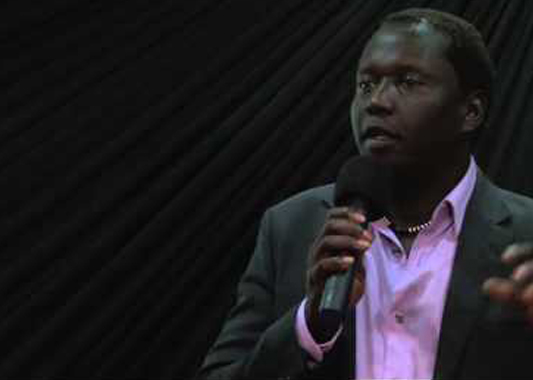Insecurity, ethnic violence threaten S. Sudan’s stability: Sudd Institute
By Julius N. Uma
August 29, 2012 (JUBA) – Waves of ethnic violence and rampant insecurity in its multiple forms across South Sudan still threaten the new nation’s efforts to achieve both economic and political stability, the Juba-based Sudd Institute has warned.

“Insecurity represents an existential threat because it appears to pose greater long–term consequences than the other challenges that a new country faces, but should overcome in due course,” said Jok Madut Jok, a co-founder of Sudd Institute.
South Sudan gained independence in July last year following a successful referendum held in January the same year. The vote, in which its population overwhelmingly chose separation, was a key prerequisite of a 2005 peace deal that ended over two decades of its conflict with Sudan.
Jok, however, said the “multiple” forms in which insecurity manifests itself in South Sudan still present a long term challenge to the new nation, with ethnic diversity.
“(…) insecurity that adopts ethnic fault lines is likely to lead to erosion of the kind of political unity that had been sustained by liberation wars and opposition to north Sudan,” he said.
A threat of ethnic disunity, he notes in the paper, is a threat to the nation’s existence.
The Sudd Institute document also blames the upsurge of insecurity in South Sudan to what it describes as the legacy of protracted wars, mainly originating from neighbouring Sudan, partly due to failure by the negotiating partners of the 2005 Comprehensive Peace Agreement (CPA) to complete the implementation of the final provisions of the deal.
The strained relations between South Sudan and Sudan, it argues, is a result of the latter’s alleged use of tribal militias to fight proxy wars with the former, which it added, further created tense tribal relations, some of which continue to present the new country with a serious disarmament challenges.
The paper, obtained by Sudan Tribune, further faults members of South Sudan’s opposition of allegedly attempting to create its own militias to defend their communities or occasional deployment of some units of the Sudan Peoples’ Liberation Army (SPLA) to respond to pockets of resistance by some ethnic groups to the SPLA’s agenda.
Such moves, it argues, have often led to south-south confrontation, which have escalated leaving efforts by the southern leadership to attain peace and stability at stake.
Last week, armed elements believed to be loyal to renegade soldier, David Yau Yau, carried out an impromptu attack, in which over 20 SPLA soldiers were killed in the Nanaam area of Pibor County in South Sudan’s Jonglei’s state.
The United Nations Mission in South Sudan, in a statement, strongly condemn this attack, saying the incident was “deliberately” intended to undermine progress made in improving the security environment and in forging inter-communal reconciliation in the troubled-state.
(ST)
